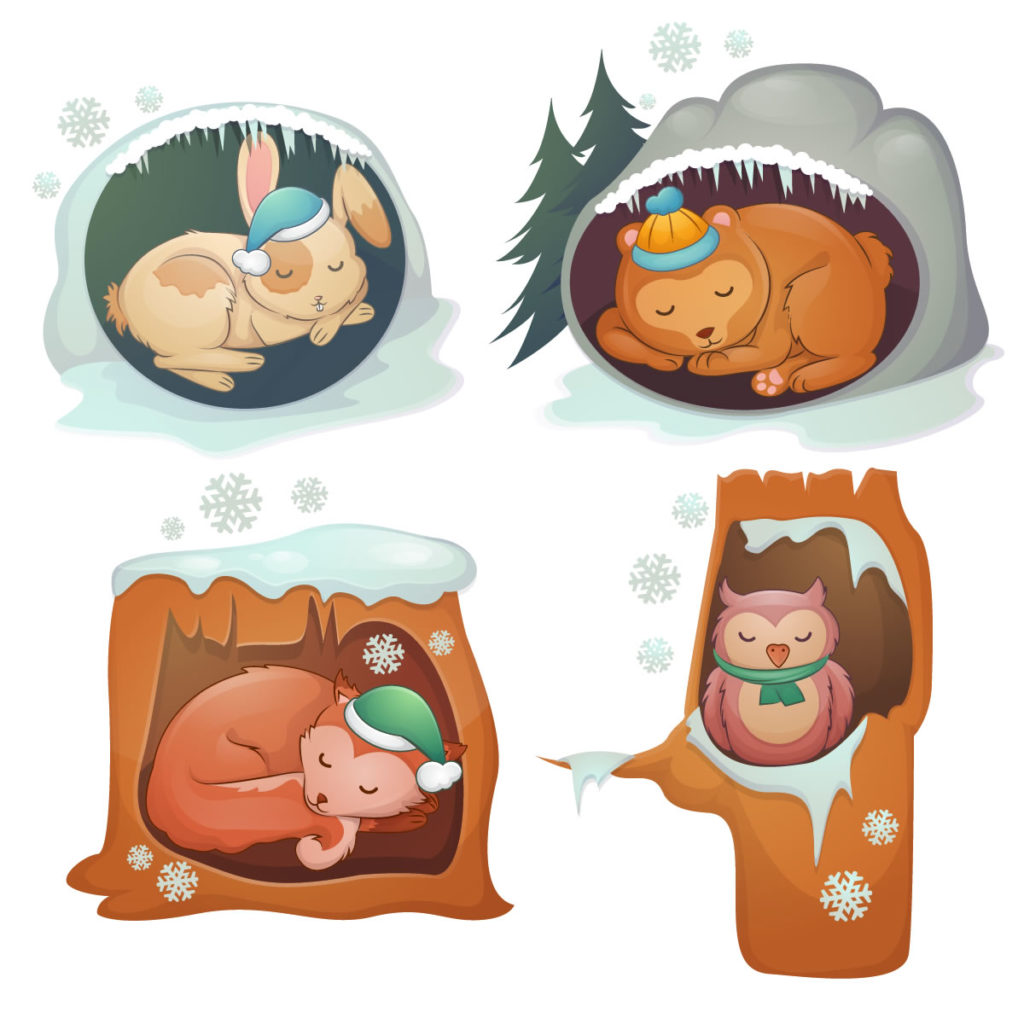Did you know that some animals hibernate for part or all of winter? This hibernation is like a kind of special sleep, very deep. When hibernation occurs, the animal’s body temperature drops and its heart rate and respiration decrease . Why? Because during this process animals use very little energy.
Already in the fall, these animals prepare for winter by eating additional food and storing it as body fat. They use this fat for energy while they hibernate, and some also store foods like nuts or acorns to eat later in the winter.
Many animals hibernate, such as bears, squirrels and even some bats. But not all animals remain inactive because, although they can live in holes in trees or under the ground to keep warm, they remain active, as occurs with deer, squirrels and rabbits. Some birds, for example, fly south during the winter, known as “migration” in search of a warmer place to find food.
Other ways to survive winter
Cold-blooded animals, such as fish, frogs, snakes, or turtles, have no way of staying warm during the winter. This is why snakes and many other reptiles find shelter in holes or burrows, and overwinter in a dormant manner similar to hibernation.
Water is also another good refuge for many animals that, when it is cold, move to the bottom of lakes and ponds . There, animals such as frogs, turtles or many fish, hide under rocks, logs or fallen leaves … they can even bury themselves in the mud! And so they become latent. Cold water contains more oxygen than warm water, and frogs and turtles can breathe by absorbing it through their skin.
Other beings, such as insects, seek winter refuge in holes in the ground , under the bark of trees, at the bottom of rotting logs, or in any small crevices they can find.
Winter for some insects
Each type of insect has its own life cycle, which is the way it grows and changes, and insects that overwinter in a kind of “hibernation” are different.
Many insects overwinter inactive or in “diapause,” which is like hibernation, a time when growth and development stop. Consequently, the insect’s heartbeat, respiration, and temperature drop.
Some insects overwinter as worm-like larvae. Other insects die after laying eggs in the fall, and those eggs hatch into new insects in the spring, starting all over again.












































































































